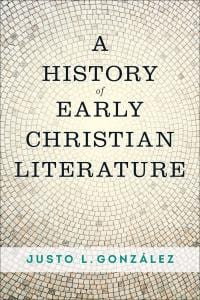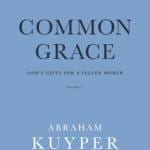You and I can got to the Christian bookstore (if we’re over a certain age) or to Amazon.com and have our choice of a whole spectrum of religious materials to read. The religion section even at secular bookstores (and yes, such things do temporarily still exist) can be overwhelming even for seasoned readers. This can be even more difficult when we throw a millennium and a half of separation between us and the author. Should I read Augustine or Jerome? Tertullian or Clement of Alexandria? Origen or Cyprian? To help us sort out these early church believers, Justo Gonzalez has written an excellent guide to these writings in his new book A History of Early Christian Literature.

As with his fantastic works of church history (seriously, if you’ve not read those you should go pick them up right now), this book delivers exactly what the title promises. Picking up after the closing of the canon in the First century AD, Gonzalez walks from the spotty and sparse early texts like 1 Clement, The Shepherd of Hermas, and the Didache through the increasingly more numerous writings of the Greek East and Latin West in the Second, Third, Fourth, and Fifth centuries AD. I haven’t confirmed this, but it really does look like every known author gets at least a short paragraph–though of course the major writers get extended attention (and occasionally their own chapter, as with folks like Augustine and John Chrysostom). Gonzalez closes out the book with a brief introduction to the literature of the Middle Ages. This is intended both to show a point of transition into a new era and to show the continuity and influence of the earlier Christian writers.
What we don’t get here, again because he has written other books dealing with the topic, is a survey of the history and theology of the early church beyond what is necessary for putting the writings under consideration into their proper context. But neither is this merely a cliff’s notes version of the writings of the early church. Instead, we get careful and thorough analysis of these texts that shows both how the thread of Christian writing develops over time and how Christians are engaged in an ongoing conversation over the nature of the faith and how it is best lived in the world.
One minor addition that I’d suggest to fill out this book (and keeping in mind that the book is already 400 pages long) is a section on what the pagans wrote about Christians. Certainly that wouldn’t fit the theme of “early Christian literature”–though Gnostic and heretical writings do get some attention, so the door to non-Christian writers has been opened already. A short chapter covering what folks like Tacitus, Pliny the Younger, and Ammianus had to say about Christian doctrine and behavior would have fit in well with the theme and tone of this book. This isn’t really an omission that needs to be corrected as much as it is an addition that I’d enjoy reading Gonzalez’s thoughts on…
This short version of this review: A History of Early Christian Literature is excellent, and you should read it.
Dr. Coyle Neal is co-host of the City of Man Podcast and an Associate Professor of Political Science at Southwest Baptist University in Bolivar, MO












